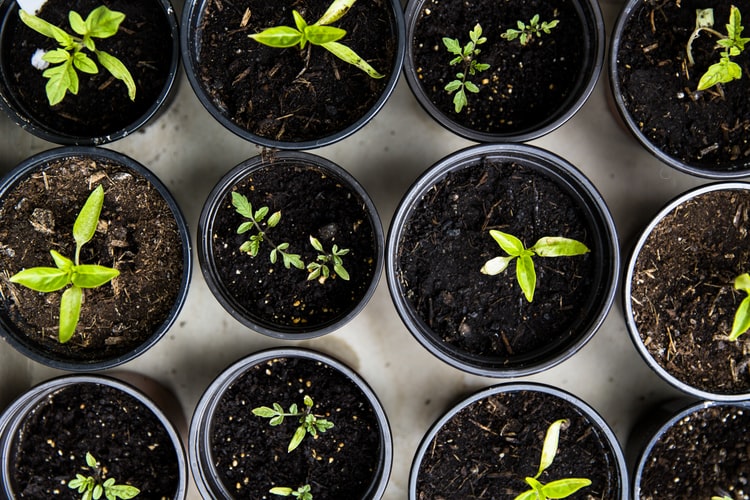Should you be the proud owner of an allotment or are a keen home gardener, or if you’re simply trying your hand at growing a few herbs out back for the first time, you’ll be well aware of the necessity to keep pests are bay. Indeed, a clear strategy here can be the difference between a delicious, fresh and healthy garden bounty and the disappointment of crops decimated. Bring home the former, with these; our 5 IDEAL ways to prevent garden pests efficiently.
HELP THE GOOD PESTS
Though not necessarily perceptible to the naked eye, there’s an entire world living in the ground and on the surface of your garden, and it all exists as an ecosystem with self-regulating rules. When bad bugs win, it’s generally because there is a deficit of their natural predators.
So, you can take good care of your garden by helping the good bugs prosper, as they’ll feed on the bad ones, keeping their numbers in check. For instance, ladybugs, parasitic wasps, and many other beneficial bugs reduce pests by feeding on their larvae or even using them in their own process of regeneration.
While the pests you’re keen to eradicate in your garden might be just the right incentive for these good bugs to appear, you should not depend only on that. To sweeten the deal, it’s prudent to offer them plenty of nectar to feed on. Flowers which produce significant nectar and allow these good bugs to feed on it should therefore be a must-have in your garden.
BOOST THE IMMUNE SYSTEM OF YOUR PLANTS
There are multiple strategies you can use to strengthen your plants without requiring pesticides that can do more harm than good in the long run.
Because let’s be honest, plants can fight off pests far more effectively when they’re healthy. Like us, they come equipped with an internal immune system that makes them more resistant to disease. To make your garden impervious to pests, you should think of boosting the immune system of your plants. Do so by providing your plants with good soil, rich in organic compounds, of which they can feed to become stronger. Just like we are advised to eat healthy foods so that we don’t fall ill, the same rule applies to plants, as well.
Another thing you can do is to consider what arrangements are more suitable for your plants. Those that love the shade should get enough of it, while those that love the sun should be planted in an area where the sun rays can bless them all day long.
CONSIDER PLANTS THAT DON’T HAVE PEST ISSUES
Some plants are more resistant to pests than others, and that’s why you can make some wise choices when selecting which ones to grow in your garden. That doesn’t mean that you should give up on the more delicate species of plants, but a little prioritising goes a long way in the garden. As such, surrounding those plants more prone to pests with ‘guardian’ plants which aren’t offers a good layer of additional protection.
USE BARRIERS TO KEEP BAD PESTS AWAY
It may sound a little rudimentary, but physical barriers can actually keep insects at bay. Many of the most prevalent plant based pests remain close to the ground at all times; if you protect your crops with floating covers, or use fabric to shade your plants (allowing the light to filter through) you will offer a blanket of protection.
The type of fence you use can also play a role, as long as it doesn’t allow bugs to fly through. Some plants only require protection during certain development phases, and you can use row cover for those times.
DIVERSIFY YOUR PLANT SELECTION
Some pests may thrive because they always find something tasty to eat in your garden. But, if you decide to diversify and use your garden patches for intercropping, you’ll find that they won’t be as enticed to attack your garden. As pests need to ‘verify’ a particular plant to see if it’s a good spot for feeding, landing on different plants all the time can put them off. Sow confusion and doubt in their minds, and you’ll be sowing better seeds for years to come.
Looking for more pest control expertise? Read our IDEAL guide to maintaining a pest-free home.








